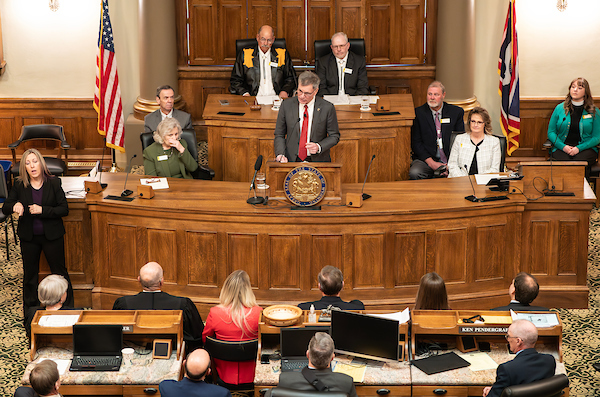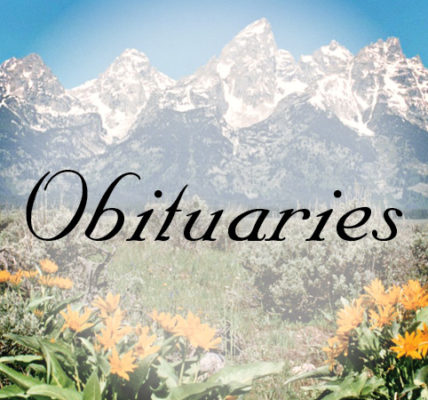By Hannah Shields
Wyoming Tribune Eagle
Via- Wyoming News Exchange
CHEYENNE — The Wyoming Legislature could be back on track to fully funding its K-12 public schools after a committee of state lawmakers voted Friday to adopt a $66.3 million cost adjustment.
The state funds its public schools through the K-12 education resource block grant. Every year, the Legislature’s Joint Appropriations Committee must make an external cost adjustment (ECA) recommendation from this block grant to the governor and legislative body by Nov. 1.
There are two different funding models that calculate the cost of education funding — the evidence or cost-based model, which is recommended by state consultants, and the statutory model, which is used by the Legislature.
Since 2020, the Legislature has funded below the cost-based model by at least $20 million or more each school year. A Legislative Service Office memo shows it would cost the state $66.4 million to catch up to the evidence-based model for the 202526 school year.
The Legislature’s Joint Education Committee voted in September to recommend an increase in state funding by $66.3 million.
This amount includes an 8.5% increase in state funding for both professional and non-professional staff, as well as a 1.068% increase for educational material costs, in the 2025-26 school year.
Wyoming School Boards Association Executive Director Brian Farmer told lawmakers on the JAC that the evidence- based model used to be called the “constitutional floor” when the statutory model exceeded it. From 2006 to 2018, the Legislature continued to fund above what was recommended by state consultants.
“Mr. Chairman, we’ve fallen below the constitutional floor, which means that we are now in jeopardy of potentially not funding an adequate education system,” Farmer said. “It’s a pertinent question to the present litigation that is before the court. It has been a question before the court in the past, and we are seeking to say, ‘Let’s fund education at that adequate level.’”
Litigation pressure
A pending lawsuit filed by the Wyoming Education Association in 2022 against the state claims that the Wyoming Legislature has underfunded its public K-12 schools by failing to fully adopt recommended adjustments for inflation in salaries for professional and non-professional staff.
Sen. Tara Nethercott, R-Cheyenne, asked LSO senior school financial analyst Matthew Wilmarth what would be an advisable recommendation for the Legislature that is both constitutional and follows the intention of Wyoming Supreme Court.
“In light of the fact that there’s no new case law available yet from this pending litigation, based on the current case law … can you give us some direction?” Nethercott said.
Wilmarth answered that state statute requires the Legislature “to evaluate the necessity of inflation and an external cost adjustment” in order to make sure the funding model remains cost-based.
LSO staff offered to advise the committee behind closed doors, but Nethercott insisted this is a conversation that needs to be held in front of the public. Given the pending litigation and the fact new lawmakers will take over this committee, the Cheyenne senator said it’s “more realistic” to have open debate on this topic.
“The failure for us to have open dialog about these issues is unfortunate,” Nethercott said, clarifying she wasn’t seeking legal advice. “We do know that there’s been a long history of (Wyoming) Supreme Court precedent concerning funding the ECA. We’re being asked to vote on that right here today, and so guidance on that vote, I think, is helpful.”
Rep. Lloyd Larsen, R-Lander, made a motion to adopt the full recommendation. He said when the Legislature starts funding less than what the consultants recommend, that’s when the governing body starts “flirting with getting into some trouble.”
‘Storm clouds on the horizon’
Co-Chairman Sen. Dave Kinskey, R-Sheridan, hesitated to adopt the full recommendation, given the revenue report that was presented before the committee the previous day. With coal production down and a move to rely on volatile sources of revenue, such as oil, Kinskey suggested waiting until after the new revenue forecast is out in January.
“Our fortunes are being buoyed by oil and gas pricing that can’t hold,” Kinskey said. “I’m concerned that there’s storm clouds on the horizon.”
Nethercott offered an amendment to reduce the 8.5% increase to staff salaries to 2%, as “a candid and solid understanding that this committee will not exist moving forward.”
“What that will require the future committee to do in January is to make the determination,” Nethercott said. “They have the tool in the toolbox to do that, by having a percentage placeholder for consideration, move it up, move it down or kill it.”
However, Nethercott’s amendment failed. The JAC voted 7-5 to adopt the $66.3 million increase in state funding for education in its supplemental budget recommendation to the governor and the full Legislature.





